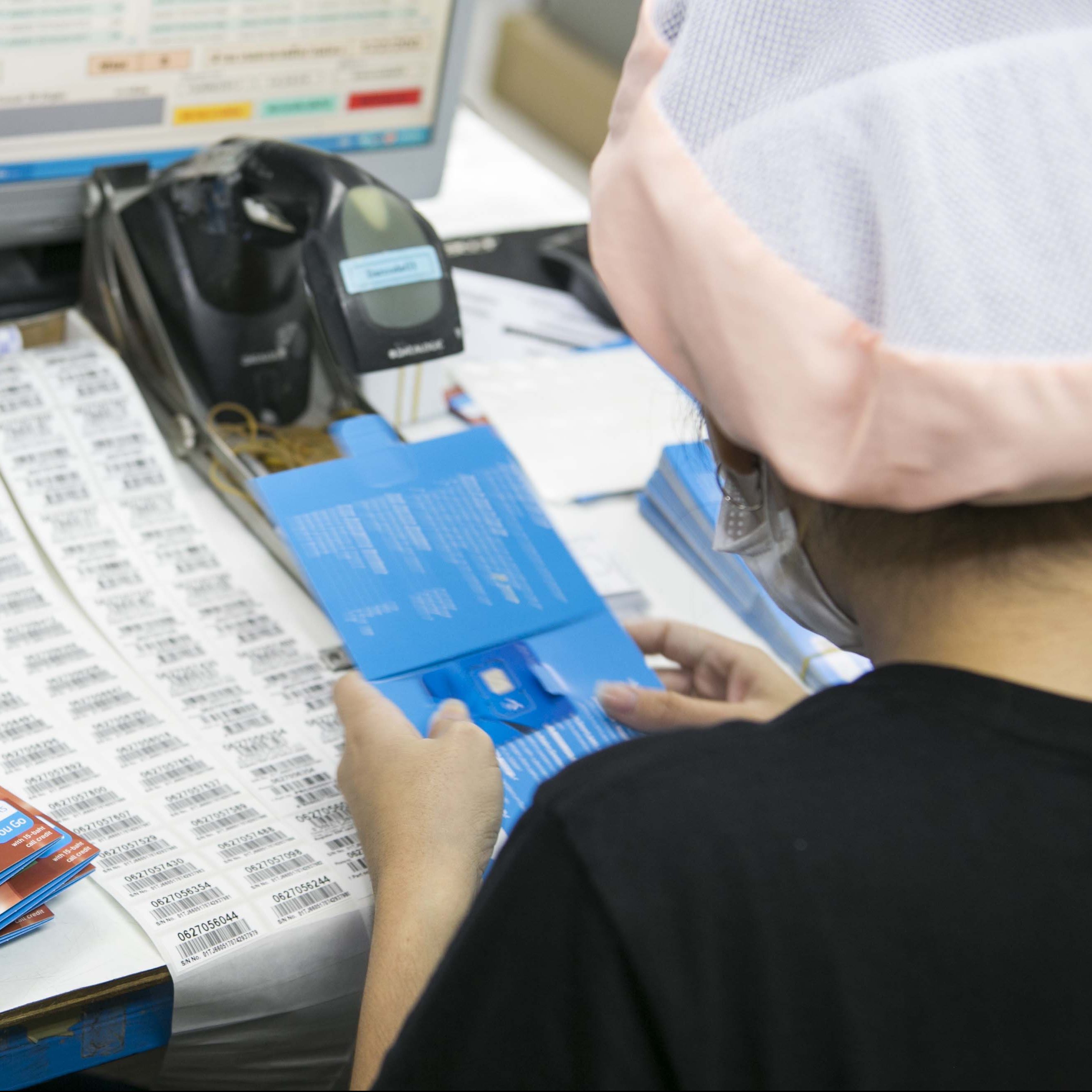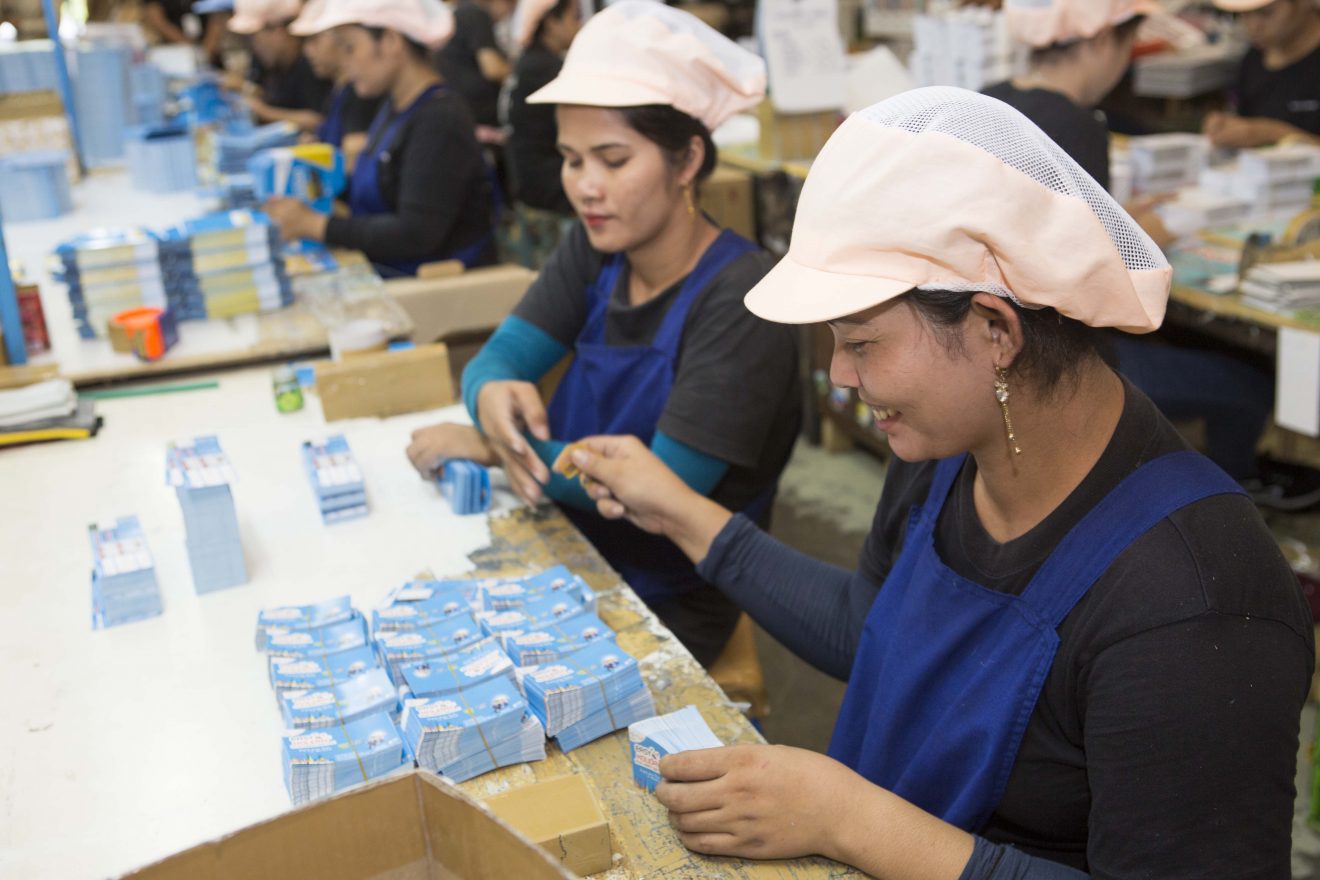The world has become more interconnected in the last few decades. People, businesses and information in different parts of the world can be more easily integrated thanks to the emergence and evolution of Information Communication Technology (ICT). Globalization creates the free flow of trade and production, including outsourcing and offshoring of supply chains.
Information technology plays a critical role in connecting the world through the internet. And the humble SIM card is one of the key elements in the connectivity supply chain.
At dtac, there is a regular demand of SIM card (around 1.5 million per month) in addition to ten million cash cards every month (cards that contain a stored balance which can be used to top up a subscription). The spread of COVID-19 has had an inevitable impact on the global supply chain, which includes SIM and cash cards production.

“The pandemic doesn’t only impact production, but also logistics, due to the state of emergency decree and curfew. There are unplanned events all the time these days. And this is challenging our team to be aware, analyze and make a decision in a timely manner to still keep our customers connected. This is our purpose at dtac: connecting you to what matters most,” said Potida Ratanashodi, Head of Business Operation at dtac.
She said that the business operation division acts as a backend for salespersons, providing a wide range of support services to ensure smooth operation for sales. This includes planning and logistics with the aim to deliver the safest products and services. In this unprecedented time, supply chain management also plays an integral role in keeping customers connected in addition to network and related functions.
A SIM Card in the making
Due to the evolution of globalization, the SIM card today is mostly supplied from outside Thailand because of the advantages of manufacturing readiness, cost and availability of semiconductors. Once the offshore production is done and shipped to Thailand, they must be sanitized by ultraviolet light for 14 days to ensure that every single touch of customers must be uncontaminated.
In the early stages of the coronavirus outbreak last year, the dtac team kept a close eye to the supply chain management on SIM and cash card production, which have millions of regular users on a monthly basis. To prepare for the unpredictable, dtac reached out to domestic factories in the vendor list in order to relocate SIM and cash card production to Thailand.
Under the designated Business Continuity Plan (BCP), these domestic manufacturers are capable of producing and delivering an integrated circuit and cash card within three days.

In addition, the team revisited the plan on distribution channels in order to reach customers, making sure that they were connected. “And during the government’s order on the temporary shutdown of dtac service centers located in malls across the country, we also made a shift on distribution channels, weighing on convenience stores and mobile phone stalls,” said Ms. Potida.
dtac also took steps to making registration for new SIMs easier on dtac.co.th, with a free delivery service within 24 hours.
“Our team worked closely with our distribution center partners 24/7 to ensure that our product is handed to customers, connecting them to their loved ones. And this truly reflects our role as a trusted mobile operator in this difficult time,” said Ms.Potida.

Fast decision is the heart of supply chain management
“In this crisis, one of the key tasks of supply chain management is fast decision making based on our data and outside information. Once the government heightened the outbreak situation due to the increased number of infections, our team started a reviewing process, evaluating how much buffer stock we had if the situation continued a longer period of time. Then, buffer stock production was made in preparation for the unexpected future,” said Ms. Potida. “With the provisional preparedness, it allows us to have buffer stock for the next few months.”
This effort proves how dtac was prepared to address the early supply chain constraints during the first wave of COVID-19. In the long term, dtac is making its supply chain more resilient and flexible by redesigning its distribution network to be more regionalized, increasing the use of digital channels among our customers and retailers, and improving efficiencies with automation.
It could be said that the business operation division acts like a supply department in warfare. It gives its full support to the front line to ensure continued services. And their business continuity plans showed dtac’s tirelessly effort to connect you to what matters most!

